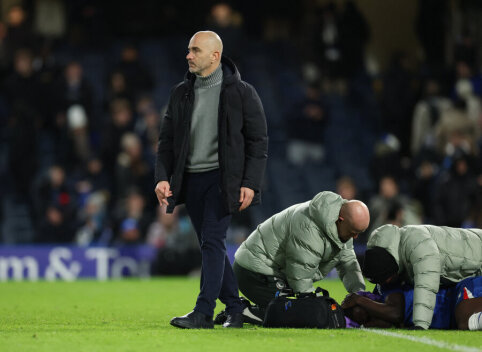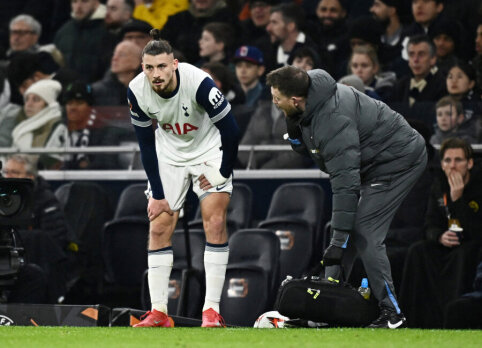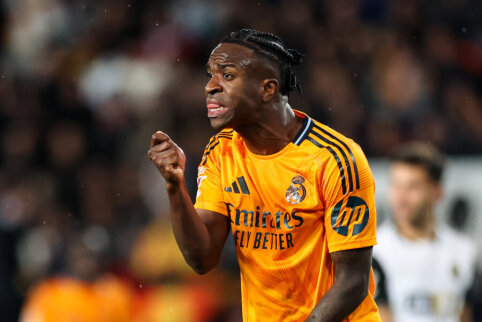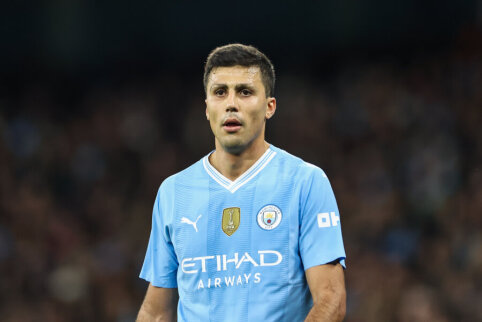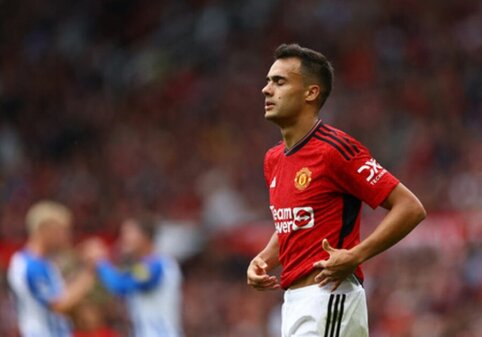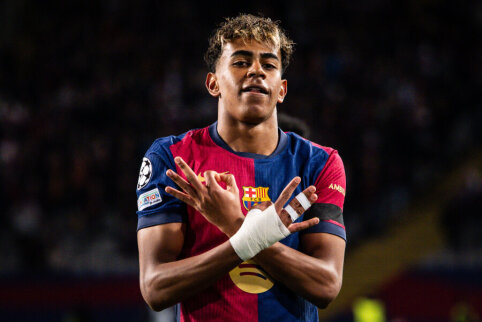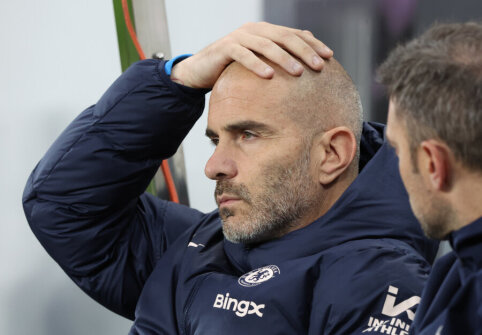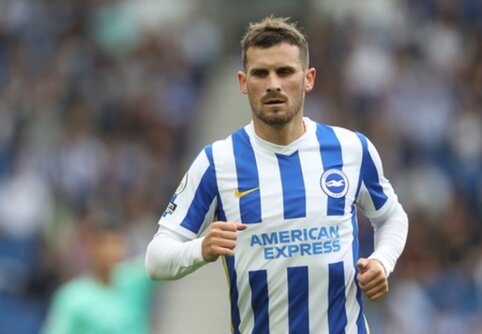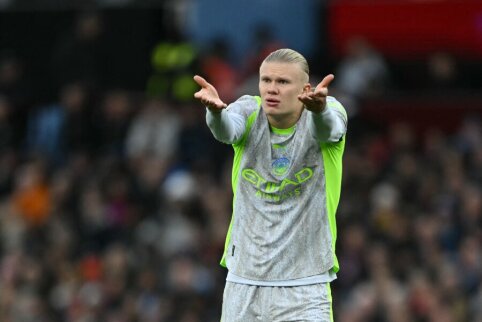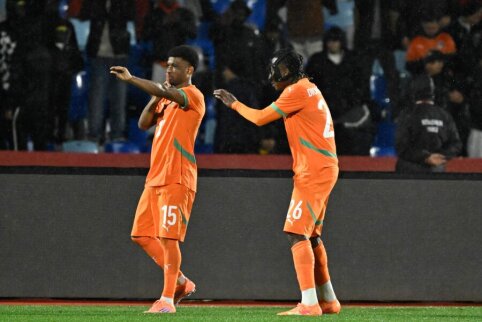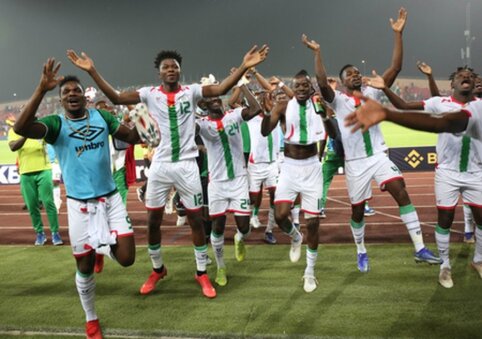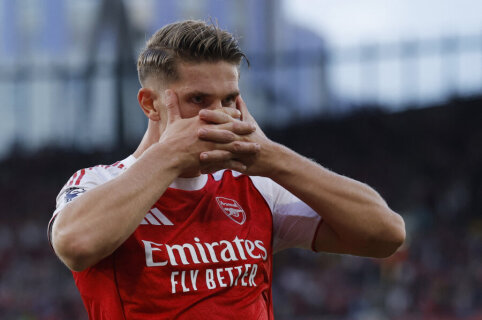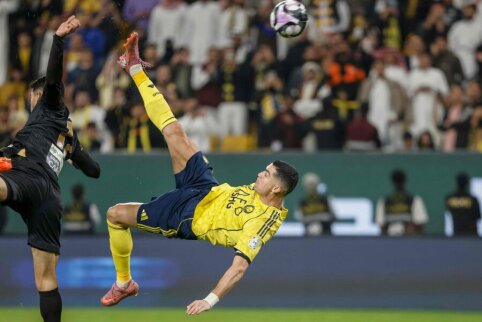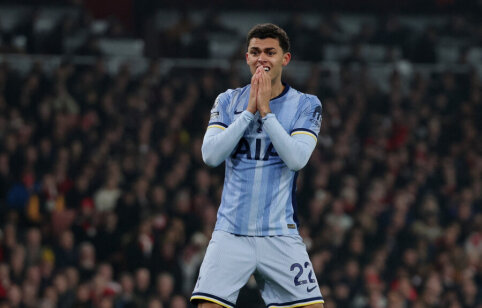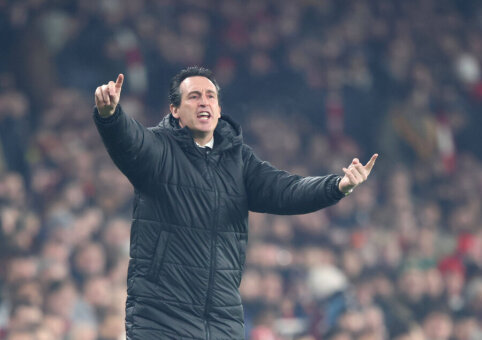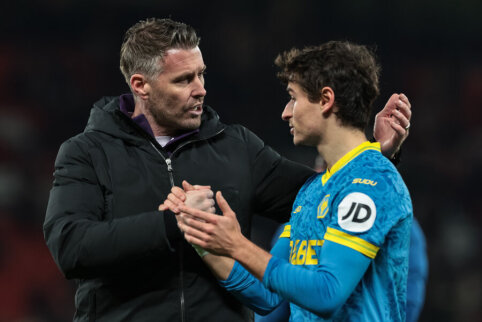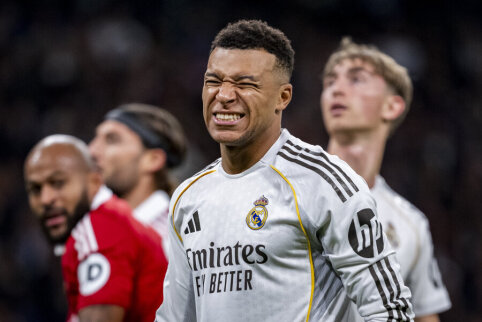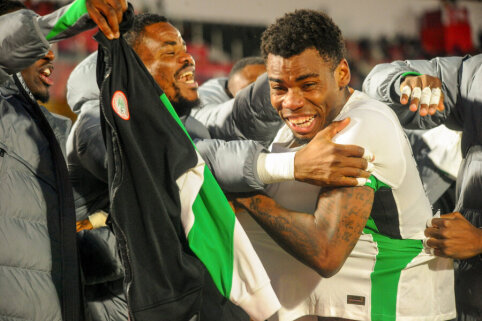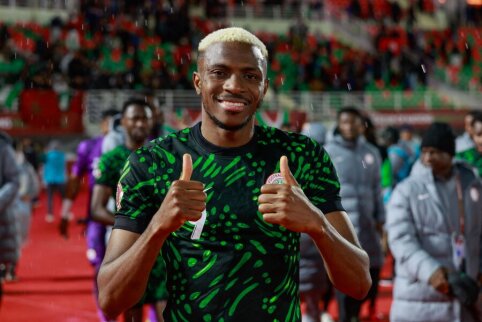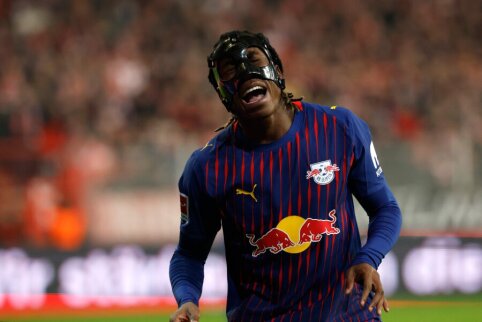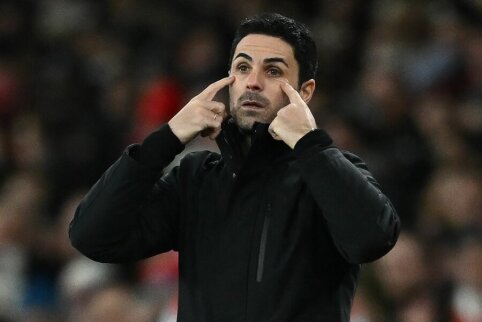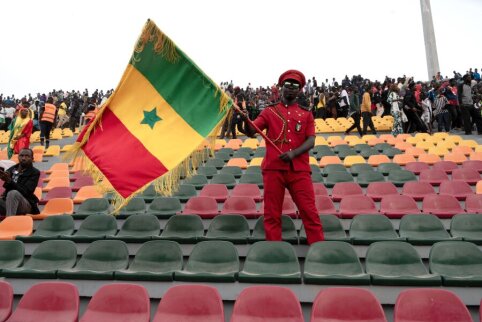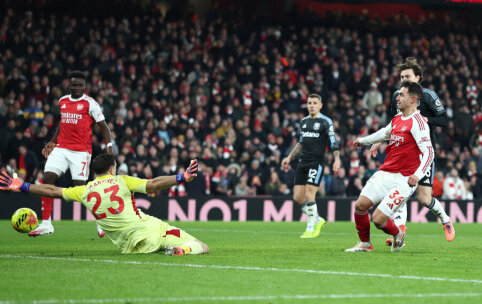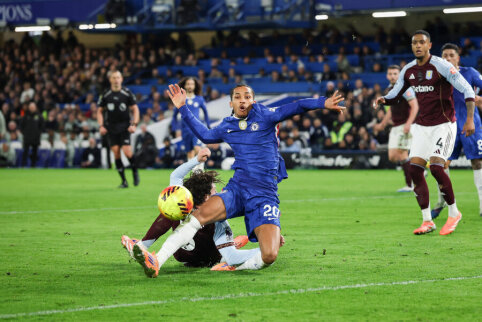 © EuroFootball.com
© EuroFootball.com
"... a sudden raid to the right attacking edge, sudden and deceptive foot movements, deceived defender, deceived the same defender again, and once again deceived defender destroys the young star. The referee quickly pulls out a yellow card and shows it to the defender who committed a foul. However, to the amazement of the spectators, the referee shows the same yellow card to the victim. Why? For mocking his opponent... This is exactly what happened to the Madrid "Real" star Robinho in Brazil. He was then still a young and immature player, distinguished by incredible ball control technique, who could not resist the temptation to show off in front of the audience. The experienced defender in that situation seemed helpless - and that's what Robinho took advantage of. Robinho was born on January 25, 1984, in the Brazilian city of Sao Vicente, with 300,000 inhabitants. The young Brazilian's passion for football emerged in childhood - neighbors often saw Robinho kicking the ball barefoot on the beach court. Robinho demonstrated exceptional abilities at the age of six, and in 1993, when Robinho was only 9 years old, he scored 73 (!) goals in the "five-a-side" indoor football championship. "There are players who have a God-given talent for football, and Robinho certainly has it," says the young superstar's "discoverer" Betinho. Impressive ball control technique and huge potential attracted the attention of major Brazilian clubs - "Corinthians," "Palmeiras," "Sao Paulo" - but Robinho ended up at "Santos." With this Brazilian club's youth team, Robinho became the Brazilian U-17 champion. Once, the Santos legend Pele visited the club's training base, and one boy caught his attention. "This guy will bring us a lot of joy," said Pele. It's probably needless to say that the guy was Robinho. And Pele seemed to be right - the young prodigy rose in the club's hierarchy and shone in the Brazilian championship final in 2002. On December 15 of that year, 75,000 spectators saw Robinho execute his 8 signature "Pedaladas" in a 20-meter stretch. He did it not against anyone, but against the "Corinthians" defender Rogerio, who had nothing else to do but "take down" the young talent. The referee did not hesitate to award a penalty, which Robinho successfully converted. Later in those impressive matches, Robinho directly contributed to two more goals for "Santos," who defeated "Corinthians." Returning to the "Pedaladas": this trick, one could say, is Robinho's signature move. Robinho alternates moving his legs around the ball without touching it, crushing defenders' psychological balance until he jumps sharply with the ball in one direction or the other. When this succeeds, and it often does, defenders only have time to see Robinho score a goal or make a successful pass. Another Robinho trademark move is the "elastico" - the player moves the ball in a way that makes it seem like his legs are elastic. This ball control technique and other skills allowed the young Brazilian to turn "Pele's Santos" into "Robinho's Santos." No one has ever come close to the King's (Pele's nickname) influence on the Santos club during his legendary success years, but ultimately, Robinho restored the glory to the club. From 1975, when Pele left, until 2002, when Robinho made his debut, "Santos" had won nothing. Since Robinho's debut, "Santos" has won the Brazilian championship twice, reached the final of the "Copa Libertadores" once, and reached the semi-finals once (some fans still believe that "Santos" lost only because Robinho was away with the national team). "People from all over the world talk about 'Santos' again only thanks to Robinho," said the legendary Brazilian footballer Pepe. - He revived the city. Now, the name 'Santos' is associated not only with Pele but also with Robinho." However, in 2002, when Robinho made his debut on the big stage, the young Brazilian's repertoire of actions was quite modest - many tricks that often had little practical value. Yet, since then, working with Emerson Leao and Vanderlei Luxemburgo, who is now the coach of "Real," Robinho has greatly improved as a player. Now he can defend, make successful passes, and shoot accurately at the goal. At the age of 21, Robinho is considered by some experts to be even better than Ronaldo or Ronaldinho when they left Brazil. All this glory had a dark side last November when Robinho's mother was kidnapped. She was released after 6 weeks, and it is claimed that the kidnappers did so only after Robinho paid a ransom of 45,000 pounds sterling. This incident deeply shook the young player, who spoke of his desire to leave Brazil, where he felt unsafe. This incident came to light in July this year, after Robinho returned from the Confederations Cup, where he became a champion. The attacker refused to train with "Santos," motivating it by saying that his "thoughts were already in Madrid." This story dragged on until July 22, when "Real" agreed with "Santos" on a sum of 28 million pounds sterling, and the transfer took place on August 25. Robinho represented "Santos" from July 22 to August 25 without any dispute and once again proved what a great player he is. Although many "Santos" fans turned their back on Robinho, the Brazilian gave the club much more than the majority of the members of the championship team in 2002. Even before Robinho left, another young talent, Diego, left the club for "Porto." Talented full-back Elano moved to Donetsk's "Shakhtar," center-back Paulo Almeida transferred to "Benfica," consistent Brazilian national team member Renato moved to "Sevilla," and one of the team's most prolific players, Ricardo Oliveira, left for "Valencia." Robinho remained loyal to the club but everything changed with his mother's kidnapping. The player decided not to risk the safety of his family since in Brazil, the families of footballers often suffer from kidnappers and thieves. However, a week before his departure, Robinho apologized to the club's fans for his refusal to play during the negotiations with "Real" and in the last home match, where "Santos" defeated "Figueirense" 4-3, and Robinho scored two penalties from eleven meters, the fans considered him a hero. The truth is that he will be missed not only by "Santos." With 83 goals scored in 191 matches, Robinho brought something special to football. Brazilians love Robinho because he brings joy to them. Now that this "Real" star is on the field, it seems that he cares about nothing else. He plays and enjoys, reminding his compatriot, the "Barcelona" leader Ronaldinho. Most fans and experts compare Robinho to Pele, but the young Brazilian is more similar to Garrincha, the legendary seventh number of the "Selecao," who was nicknamed the "joy of the fans" for his pleasing style of play. Garrincha spent most of his career at the "Botafogo" club and was a star of the Brazilian national team, which won the World Championships in 1958 and 1962. Garrincha felt immense joy on the pitch, and fans clearly saw that they enjoyed it very much. The star's biographer states that "Garrincha was the least mature professional footballer in the world." Robinho is undoubtedly more professional than Garrincha, but they are both united by a desire to delight the fans. Unlike Garrincha, Robinho does not shy away from antics on and off the pitch. In one memorable episode, Robinho pulled down the trousers of his former teammate in "Santos," Diego, as he posed for an official photo of the Brazilian national team. After facing considerable professional criticism, Robinho stated that he would henceforth behave like other football "aristocrats," like his teammates at "Real," Zinedine Zidane, Raul, or David Beckham. Football fans worldwide can only hope that Robinho will not rest on his laurels but will continue to learn sincerely, train hard, and become one of the best players in the world, perhaps even better than the legendary Pele. All the conditions seem to be there. Robinho plays for one of the best clubs in the world, Madrid's "Real," with arguably the best training facilities. And Robinho himself is very pleased to play with his childhood idol Ronaldo: "Playing with Ronaldo was my dream, and playing with him for 'Real' I didn't even dare to dream." So, will Robinho be better than Pele? Time will tell..."
